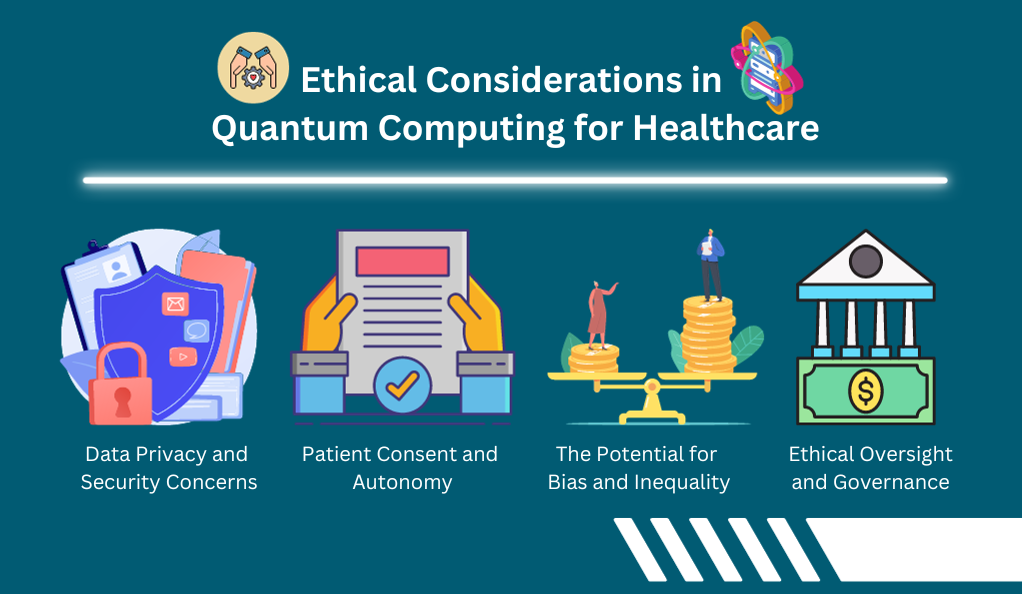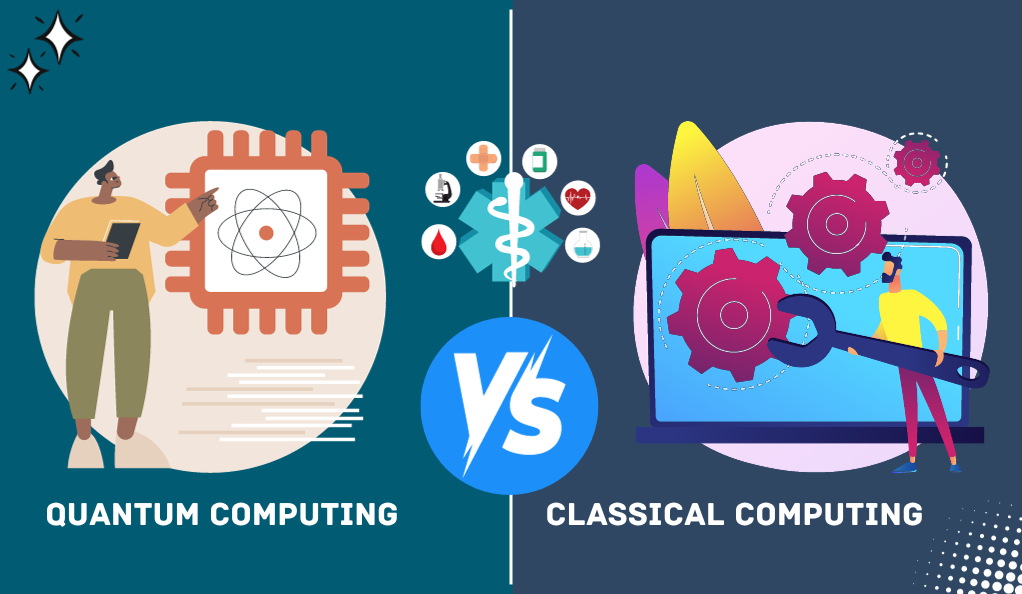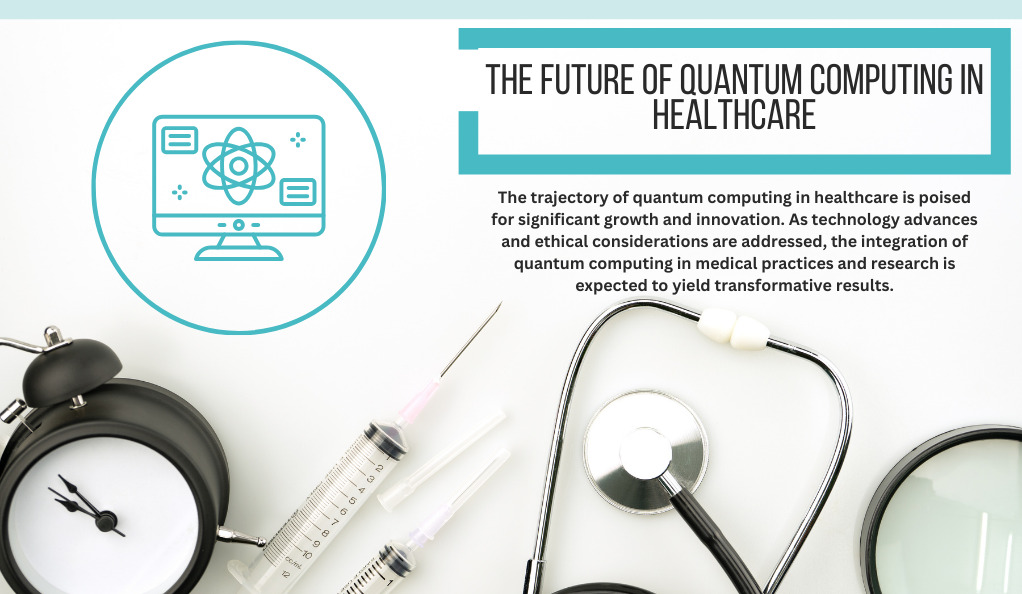Quantum computing represents a monumental leap forward in our ability to process information, harnessing the peculiar and fascinating principles of quantum mechanics. Unlike classical computers that use bits to represent a 0 or a 1, quantum computers use qubits which can represent a 0, 1, or both simultaneously, thanks to the phenomenon of superposition. This unique property allows quantum computers to perform complex calculations at speeds unattainable by classical computers.
1.1 Definition and Basic Principles
At its core, quantum computing leverages the principles of quantum mechanics, a fundamental theory in physics that describes nature at the smallest scales, such as that of particles at the atomic and subatomic level. The two key principles that quantum computing takes advantage of are:
- Quantum Superposition: This is the ability of quantum particles to be in multiple states at once. A qubit, the basic unit of quantum information, can exist in a superposition of both 0 and 1 states.
- Quantum Entanglement: This is a phenomenon where quantum particles become interconnected and the state of one can instantly influence the state of the other, no matter how far apart they are. This allows for faster information transfer and synchronization.
| Quantum Computing Journey |
|---|
| 1980s – Conceptual Introduction of Quantum Computing |
| Late 1990s – Early 2000s – Initial Experimental Demos |
| Recent Years – Surge in Interest and Investment |
| – Tech giants and startups racing to develop quantum computers |
| – Rapid advancements in qubit counts, error rates, algorithms |
| Ongoing Challenges – Quantum Computing in Its Infancy |
| – Technical hurdles remain |
| Potential Rewards – Solving Unreachable Problems |
| – Unlocking capabilities beyond classical computers |
The Role of Quantum Computing in Healthcare
Quantum computing holds transformative potential for the healthcare sector, promising to accelerate drug discovery, enhance diagnostic accuracy, and optimize treatment plans. By leveraging its unparalleled computational power, quantum computing can analyze vast datasets, simulate complex biological processes, and provide insights that are currently beyond the reach of classical computing methods.
2.1 Potential Applications in Drug Discovery, Diagnostics, and Treatment Optimization
- Drug Discovery: Quantum computers can simulate molecular interactions at an unprecedented scale and speed, enabling the identification of potential drug candidates much faster than current methods. This is particularly crucial for complex diseases like cancer or neurodegenerative disorders, where the molecular basis of the disease is intricate.
- Diagnostics: In diagnostics, quantum computing can analyze medical images, genomic data, and patient records to identify patterns and anomalies. This can lead to earlier and more accurate diagnoses, particularly in diseases where early detection is crucial for successful treatment.
- Treatment Optimization: Quantum computing can also play a role in personalizing treatment plans. By analyzing patient data and simulating treatment outcomes, healthcare providers can tailor interventions to the individual, improving efficacy and reducing side effects.
2.2 Case Studies of Quantum Computing in Medical Research
There are already several promising case studies showcasing the potential of quantum computing in healthcare. For instance, companies like IBM and Google are actively exploring quantum algorithms for drug discovery, while startups are developing quantum-inspired solutions for medical imaging.
One notable example is the use of quantum computing in the development of new materials for drug delivery. By simulating the interactions between drugs and delivery materials at the quantum level, researchers can design more effective and safer drug delivery systems.
2.3 The Synergy of Quantum Computing and Artificial Intelligence in Healthcare
The integration of quantum computing and artificial intelligence (AI) is set to create a powerful synergy in healthcare. Quantum computers can process and analyze the vast datasets generated by AI algorithms at speeds unattainable by classical computers. This not only enhances the capabilities of AI in healthcare but also opens up new avenues for research and innovation.
Ethical Considerations in Quantum Computing for Healthcare
As quantum computing continues to make strides in healthcare, it brings with it a host of ethical considerations that must be addressed to ensure responsible and equitable use. The power of quantum computing, while promising significant advancements, also raises questions about data privacy, patient autonomy, and the potential for bias.

3.1 Data Privacy and Security Concerns
The ability of quantum computers to process information at unprecedented speeds also means they have the potential to break current encryption methods, posing significant risks to data privacy and security. Ensuring the protection of sensitive patient data is paramount, and new encryption techniques and security protocols must be developed to safeguard information against quantum attacks.
3.2 Implications for Patient Consent and Autonomy
The use of quantum computing in healthcare necessitates a reevaluation of how patient consent is obtained and respected. Patients must be fully informed about how their data will be used, the potential risks involved, and the measures in place to protect their information. Additionally, the autonomy of patients in decision-making processes must be upheld, ensuring that the use of quantum computing enhances rather than undermines patient agency.
3.3 The Potential for Bias and Inequality
Quantum computing in healthcare must guard against bias and inequality. Diverse data sets are vital to avoid biased results, and equitable access ensures a healthcare divide doesn’t emerge.
3.4 Ethical Oversight and Governance
Establishing robust ethical oversight and governance structures is essential to navigate the complex ethical landscape of quantum computing in healthcare. This includes the development of ethical guidelines, the establishment of oversight bodies, and the implementation of accountability mechanisms to ensure responsible use.
Quantum Computing vs. Classical Computing in Healthcare
The advent of quantum computing introduces a paradigm shift in computational capabilities, presenting a stark contrast to classical computing, especially in the realm of healthcare. This comparison highlights the unique advantages and limitations of both computing paradigms, providing insight into their respective roles and potential impact on healthcare.

4.1 Comparative Advantages and Limitations
- Speed and Efficiency: Quantum computers excel in solving complex problems that are practically unsolvable for classical computers. They can process vast datasets and perform computations at speeds unattainable by classical counterparts, making them invaluable for tasks like simulating molecular interactions for drug discovery.
- Precision and Complexity: Quantum computing provides a higher degree of precision in simulations, especially in the modeling of biological processes at the quantum level. This precision is crucial for understanding the intricate details of molecular interactions and disease mechanisms.
- Scalability: While quantum computers have the potential for exponential scalability, current technology is still in the developmental stage. Classical computers, on the other hand, have well-established infrastructure and scalability, although they may struggle with the computational demands of certain tasks in healthcare.
- Error Rates and Stability: Quantum computers currently face challenges with error rates and stability, given their sensitivity to external factors. Classical computers are generally more stable and have lower error rates, making them more reliable for certain healthcare applications.
4.2 Real-World Examples of Quantum Computing Outperforming Classical Methods
There are emerging examples where quantum computing has demonstrated superiority over classical methods in healthcare. For instance, in drug discovery, quantum computers have successfully identified potential drug candidates for complex diseases in a fraction of the time it would take a classical computer. Similarly, in medical imaging, quantum algorithms have shown promise in enhancing image resolution and reducing noise, leading to more accurate diagnoses.
4.3 The Complementary Relationship Between Quantum and Classical Computing
Rather than viewing quantum and classical computing as mutually exclusive, it is more productive to see them as complementary. Quantum computers can tackle specific, complex problems more efficiently, while classical computers remain indispensable for a wide range of everyday computing tasks. In healthcare, this complementary relationship allows for the integration of quantum-powered insights with the reliability and accessibility of classical computing, leading to more comprehensive and effective solutions.
The Future of Quantum Computing in Healthcare
The trajectory of quantum computing in healthcare is poised for significant growth and innovation. As technology advances and ethical considerations are addressed, the integration of quantum computing in medical practices and research is expected to yield transformative results.

5.1 Predictions for the Next Decade
Over the next decade, we anticipate substantial progress in the development of quantum computers, with improvements in qubit stability, error rates, and scalability. These advancements will enhance the practicality and accessibility of quantum computing in healthcare, enabling more widespread adoption and integration into medical workflows.
In drug discovery, quantum computing is expected to drastically reduce the time and resources required to identify potential drug candidates, accelerating the development of new treatments. In diagnostics, enhanced computational capabilities will lead to more accurate and timely diagnoses, particularly in complex cases where current methods may fall short.
5.2 Potential Breakthroughs and Innovations on the Horizon
The future of quantum computing in healthcare holds the promise of numerous breakthroughs and innovations. We may see the development of new materials and methods for drug delivery, optimized through quantum simulations. Personalized medicine could reach new heights, with treatment plans tailored to the individual at a molecular level.
Additionally, the integration of quantum computing and artificial intelligence is expected to unlock new potentials in predictive analytics, leading to more proactive and preventive healthcare strategies. The ability to analyze vast datasets in real-time will enable healthcare providers to identify risk factors and intervene earlier in the course of diseases.
5.3 Preparing for the Quantum Future in Healthcare
As we stand on the cusp of this quantum revolution in healthcare, it is crucial to prepare for the changes and challenges ahead. This includes investing in education and training for healthcare professionals, developing robust ethical guidelines and governance structures, and fostering a culture of innovation and collaboration.
Ensuring equitable access to the benefits of quantum computing is also paramount, to prevent the widening of existing healthcare disparities. This requires concerted efforts from governments, industry, and the healthcare sector to create an inclusive and supportive ecosystem for quantum innovation.
Challenges and Limitations
While the potential of quantum computing in healthcare is vast, it is not without its challenges and limitations. Addressing these issues is crucial for the successful integration of quantum computing into medical practices and research.
6.1 Technical Challenges in Quantum Computing for Healthcare Applications
Quantum computers are inherently complex and delicate machines, sensitive to their external environment. This sensitivity can lead to high error rates and instability in computations, which is a significant challenge, especially in healthcare applications where precision is paramount. Developing error correction methods and stabilizing qubits are ongoing areas of research and development.
Another technical challenge is the current lack of quantum algorithms specifically tailored for healthcare applications. While there has been progress in developing algorithms for general purposes, creating algorithms that can leverage the full potential of quantum computing for specific medical applications requires further research and innovation.
6.2 Ethical Dilemmas and Potential Pitfalls
The integration of quantum computing in healthcare also raises ethical dilemmas, particularly concerning data privacy and security. The potential for quantum computers to break current encryption methods poses a significant risk to patient data, necessitating the development of new encryption techniques and security protocols.
There is also the risk of bias in quantum-driven medical solutions, especially if the algorithms are trained on non-representative data sets. Ensuring fairness and equity in quantum computing applications is a critical ethical consideration that must be addressed to prevent the exacerbation of existing healthcare disparities.
6.3 Bridging the Knowledge Gap
The complexity of quantum computing also presents a knowledge gap in the healthcare sector. For healthcare professionals to effectively leverage quantum computing, there needs to be significant investment in education and training. Bridging this knowledge gap is essential for the responsible and effective use of quantum computing in healthcare.
6.4 Ensuring Equitable Access and Adoption
Ensuring equitable access to the benefits of quantum computing is another challenge. There is a risk of creating a divide between those who have access to quantum-powered healthcare solutions and those who do not. Addressing this challenge requires concerted efforts from governments, industry, and the healthcare sector to create an inclusive environment that promotes equitable access and adoption.
Conclusion
Quantum computing’s integration into healthcare heralds a transformative era. It empowers drug discovery, diagnostics, and personalized treatment with unmatched capabilities. This synergy with artificial intelligence promises innovation and endless possibilities.
Embracing quantum computing requires upholding integrity, data security, and ethical standards. It’s vital to address privacy, consent, bias, and inequality. By tackling technical hurdles, fostering education, and promoting innovation, we can harness quantum computing’s potential for a healthier future in healthcare.




